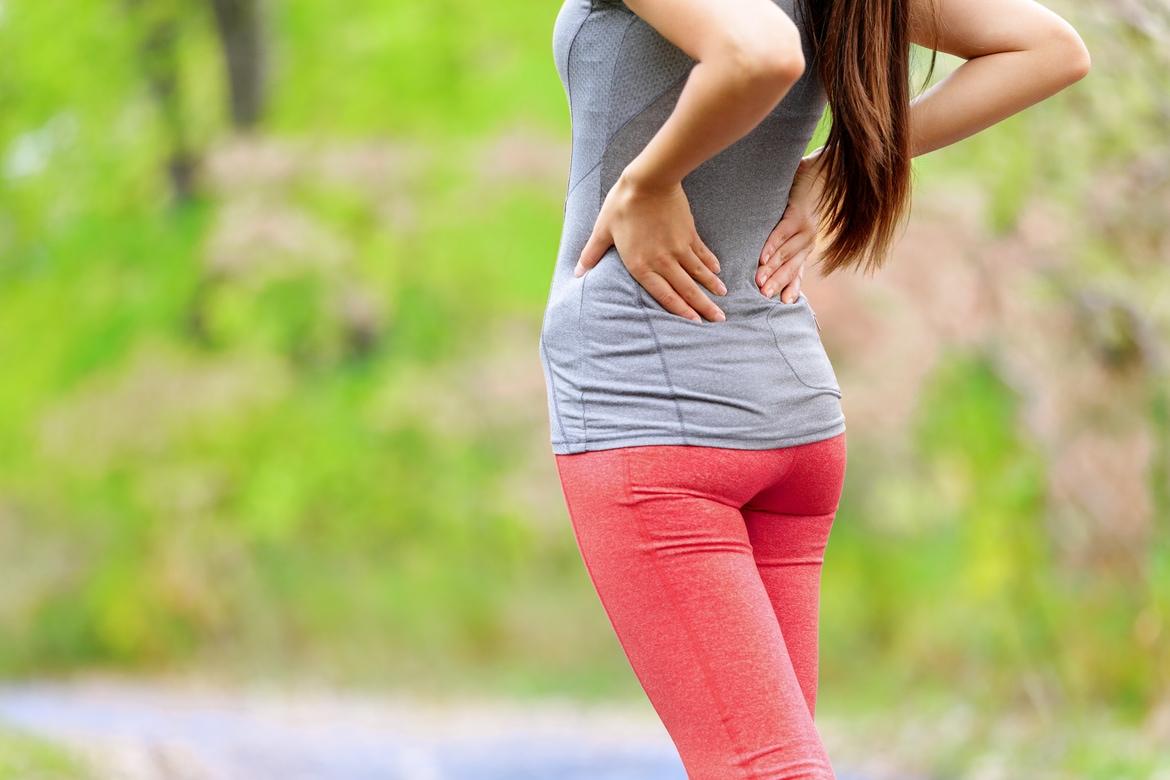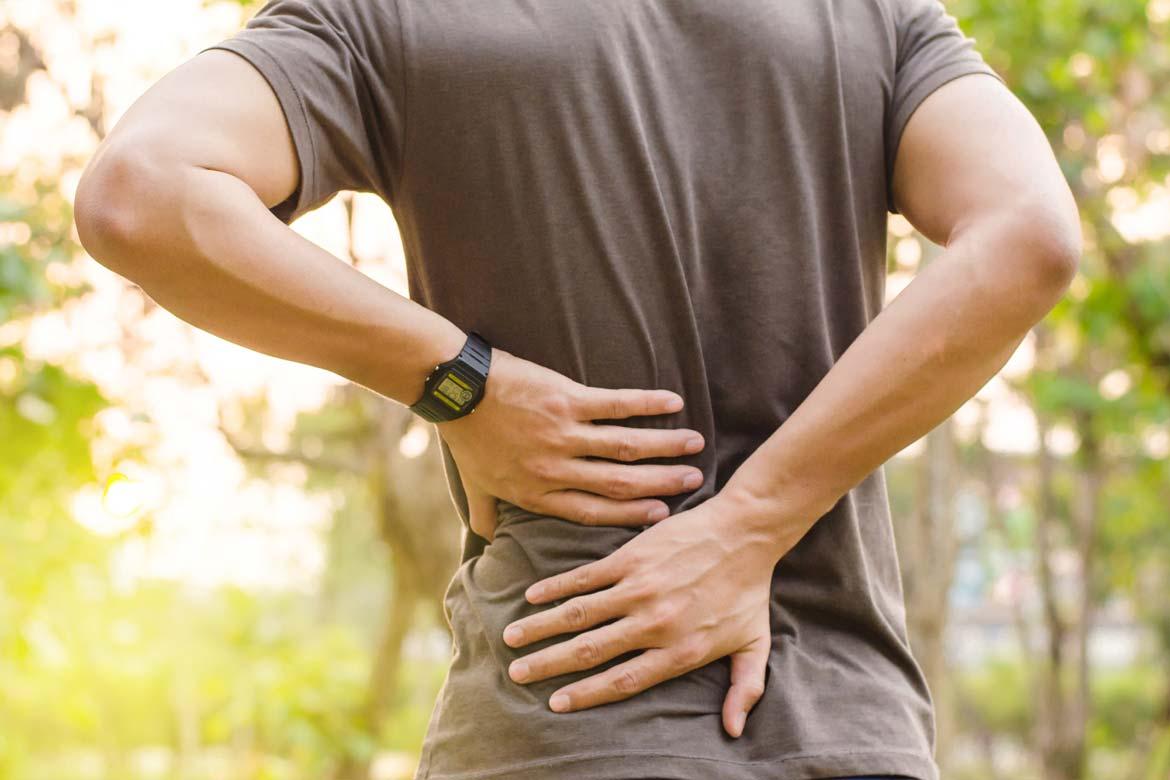-
-
Featured Care Areas

Lumbar Pain
What is lumbar pain?
Back pain is common and usually lasts for a short time. There are steps a person can take to ease the symptoms and prevent future problems. The most common type of back pain is pain in the lower back (lumbar spine) as this area bears the stress of the body weight throughout the day.
Many have lower back pain at some point in their lives, but few are caused by a chronic, medical problem. Lower back pain often goes away after 2 – 6 weeks, and it can be separated into 2 categories:
- Mechanical pain is associated with certain movements and usually improves with rest. It usually occurs due to muscle strains, ligament sprains, and wear and tear of the spinal joints and discs.
- Non-mechanical back pain may be present with or without movement. It may even be worse when the person is resting. It may have a neuropathic origin or involve a disease process that is destroying the structure of the spine, such as an infection or cancer.
What are the symptoms of lumbar pain?
Symptoms of lower back pain vary depending on the structures affected. Common symptoms include:
- Back stiffness and reduced range of movement
- Muscle weakness in the hip, thigh, leg or foot
- Pain spreading from the buttock to the foot
- Pain spreading into the buttocks and thighs
- Sensory changes (numbness, prickling or tingling) in the leg, foot or toes
Rarely, symptoms may include changes in bowel or bladder function. This can result from a large disc herniation pressing on the nerves leading to the bowels or bladder.
What are the causes of lumbar pain?
The causes of lower back pain include:
- Arthritis, an inflammatory joint condition, that leads to decreased mobility or disability.
- Bone tumour, which is likely to cause pain and lead to bone fractures.
- Bone fracture, which is a broken bone caused by stress or a strong physical impact applied to the bone.
- Poor posture, such as sitting for long periods, puts more pressure on your back than laying down or standing, which can result in back pain.
- Slipped disc, also known as a herniated disc, is typically caused by wear and tear. This causes the discs to lose their elasticity and become more prone to damage.
- Lumbar spinal stenosis, which is caused by the progressive narrowing of the spinal canal, placing pressure on the spinal cords and nerve roots.
- Back injury and trauma may affect the intervertebral discs and joints between vertebrae. This can cause degeneration, which can lead to lower back pain.
What are the risk factors for lumbar pain?
There are a number of risk factors of lumbar pain, which include:
- Age, as back pain is more common as you get older.
- Lack of exercise, as weak, unused muscles in your back and abdomen might contribute to back pain.
- Excess weight, which puts additional stress on the back.
- Medical conditions such as arthritis and some types of cancer can contribute to back pain.
- Improper lifting, or lifting with your back instead of your legs, places unnecessary stress on the back.
- Psychological conditions such as depression and anxiety appear to increase the risk for back pain.
- Smoking, which decreases blood flow to the spine and increases the risk of osteoporosis, is also believed to contribute to back pain as a result of coughing, which can lead to herniated discs.
What are the complications and related diseases of lumbar pain?
Left untreated, lower back pain can lead to further complications, which include:
- Worsening of symptoms. Symptoms such as stiffness, pain or numbness can get worse. This can affect your ability to sit, stand or sleep comfortably.
- Nerve damage. If you have a slipped or herniated disc, this can increase pressure on nerves such as the sciatic nerve which extends from the lower back and down the back of each leg. This pressure can damage the nerves.
- Weight gain. Many people with back pain avoid regular exercise, which contributes to weight gain and loss of muscle mass.
- Poor posture. It is common for people experiencing chronic pain to assume a position that eases the pain. However, when this unnatural position is held for a long time, this can lead to poor posture.
- Loss of work. Severe back pain makes it difficult to continue working, making it a common cause of sick leave or absence from work.
- Insomnia. Lower back pain can make it difficult to sleep or rest, which can lead to irritability, difficulty focusing and trouble dealing with daily activities and responsibilities.
- Depression. Back pain can keep you from many things, from socialising and participating in your favourite activities, to work and other responsibilities. This can affect your relationships and mental health, and make it more difficult to recover.
If you suddenly experience symptoms such as loss of bladder or bowel control, or severe pain in the abdomen, this may be a sign of a serious underlying condition, and you should seek immediate medical attention.
How do you prevent lumbar pain?
There are a number of ways you can prevent lumbar pain, including:
- Exercise, especially low-impact activities such as swimming, to increase strength and endurance of your back muscles. Exercises that work your abdominal and back muscles also help to strengthen your core.
- Maintaining a healthy body weight, to reduce pressure and strain on the back muscles.
- Avoiding or quitting smoking, which decreases blood flow to the spine.
- Maintaining good posture. While standing, avoid slouching, maintain a neutral pelvic position and alternate feet or place one foot on a low stool to ease the pressure. While sitting, choose a seat with good lower back support and keep the knees at the same height as your hips. A pillow or rolled towel can help to maintain a natural curve.
- Using good techniques while lifting. If you must lift something heavy, bend your knees and keep your back straight to allow your knees to support the weight. Hold the weight close to your body and avoid twisting at the waist.
This page has been reviewed by our medical content reviewers.
Need help?
For enquiries, please call
+65 6575 7575
For appointment bookings, please WhatsApp
+65 8111 9777




